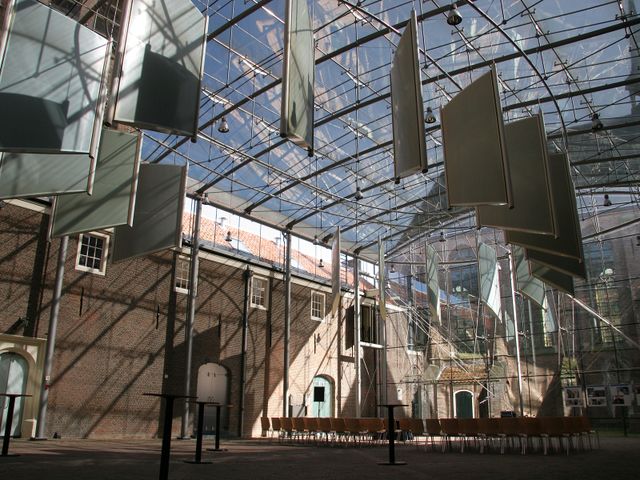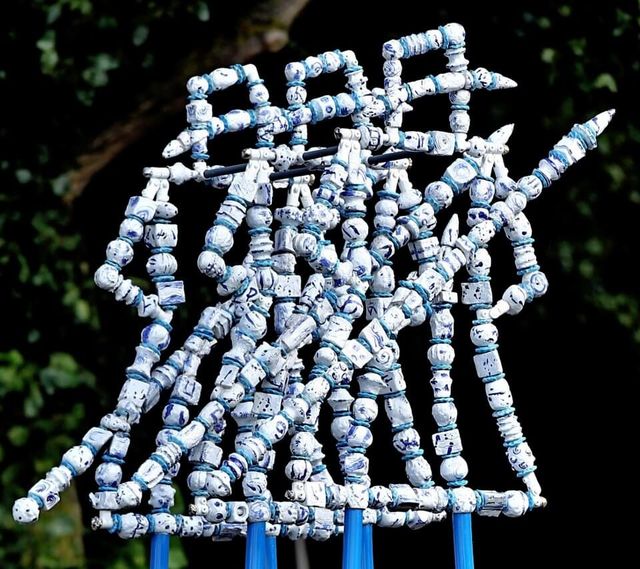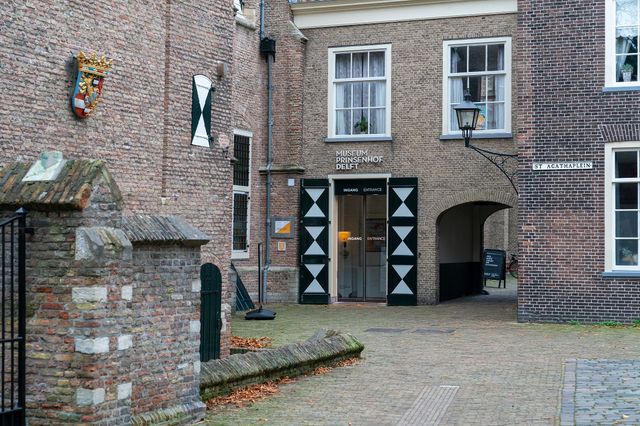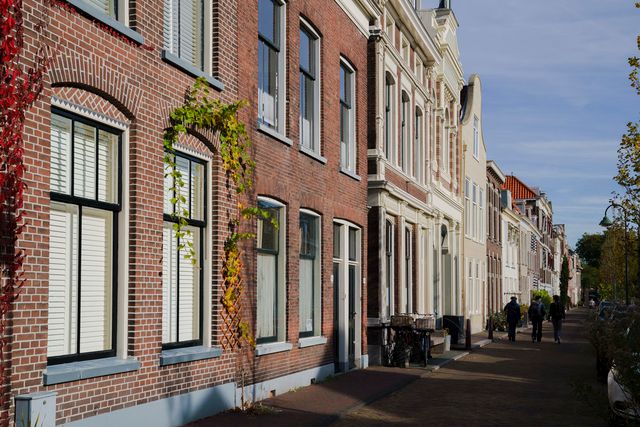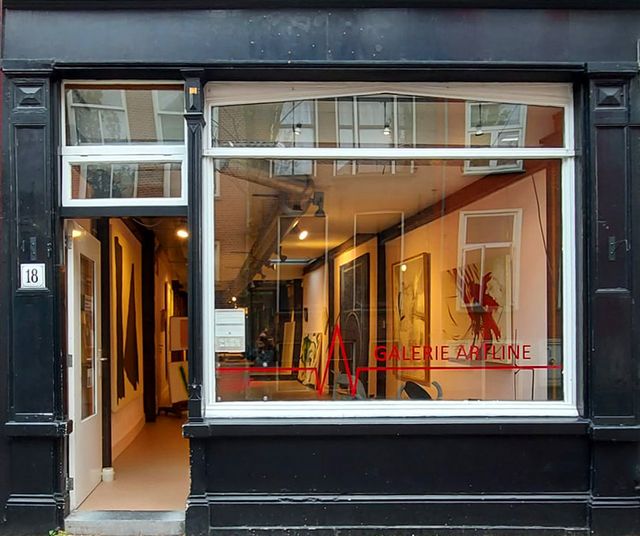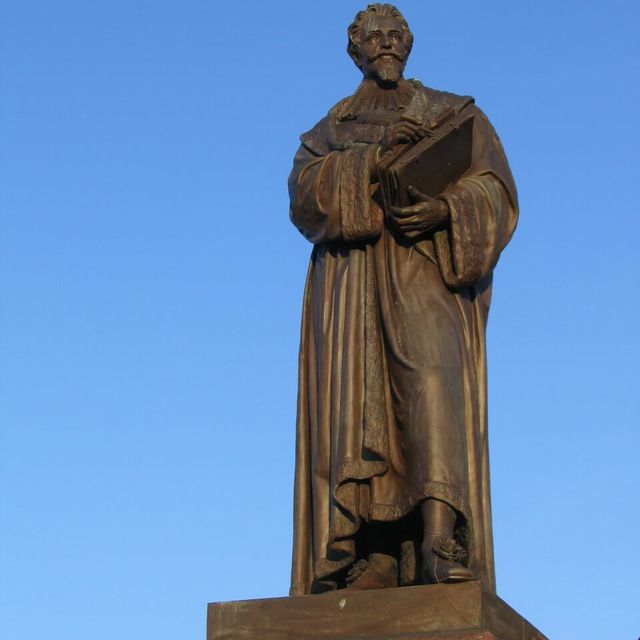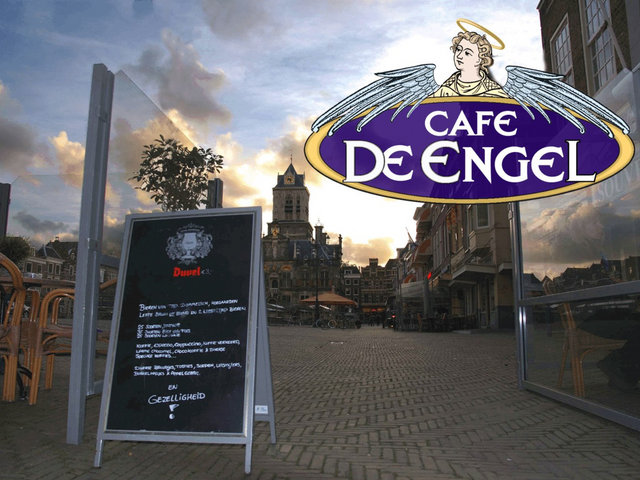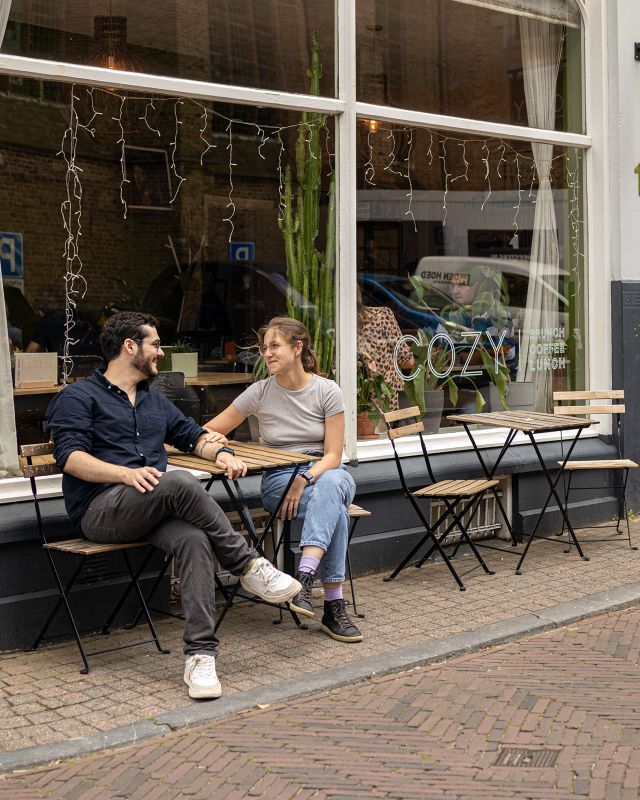
Nieuwe Kerk - Walking route Antoni
Antoni van Leeuwenhoek was born ‘Thonis (Antoni)’ in Delft on 4 November 1632.
Baptismal register
In the Nieuwe Kerk’s baptismal register, his name is mentioned on the same page as another famous citizen of Delft: Johannes Vermeer. He was baptised four days after Vermeer. It is often assumed that the two were close friends. Some have even suggested that the natural scientist Antoni posed for Vermeer’s paintings The Geographer and The Astronomer, and that he may have provided the artist with lenses for his camera obscura, but this has never been proven. After Vermeer’s death in 1675, Van Leeuwenhoek acted as trustee of his legacy. He had to collect the money that Vermeer owed to the municipality.
The drop test and Aristotle
With their drop test from the t…
Baptismal register
In the Nieuwe Kerk’s baptismal register, his name is mentioned on the same page as another famous citizen of Delft: Johannes Vermeer. He was baptised four days after Vermeer. It is often assumed that the two were close friends. Some have even suggested that the natural scientist Antoni posed for Vermeer’s paintings The Geographer and The Astronomer, and that he may have provided the artist with lenses for his camera obscura, but this has never been proven. After Vermeer’s death in 1675, Van Leeuwenhoek acted as trustee of his legacy. He had to collect the money that Vermeer owed to the municipality.
The drop test and Aristotle
With their drop test from the tower of the Nieuwe Kerk, Simon Stevin and Jan Cornets de Groot (the father of Hugo Grotius; see next stop) proved that Aristotle had been wrong. Aristotle had claimed that heavy objects fall more quickly than lighter ones, but this is not true. Although this discovery is often ascribed to Giambattista Benedetti or Galilei, Stevin published the proof as early as 1584.
Stevin made many groundbreaking contributions to theory and practice in mathematics, physics and hydraulic engineering, and he also enriched the Dutch language with words such as ‘wiskunde’ (maths) and ‘wijsbegeerte’ (philosophy).

